It is disconcerting to have your brake warning light popping up while driving. Your safety is at stake, so it’s natural for you to be afraid. In this article, I’ll discuss the brake system warning light – what does it mean when it comes on?
When the brake warning light of your car suddenly comes on, it indicates that there’s something wrong with your braking system. You must not disregard this warning. Act on it right away because it is dangerous to drive your car if its brake warning light is acting like this.
Several things can trigger the brake warning light of your car. One of the most common reasons is the parking brake is still engaged. Another reason is the brake fluid level is low.
Whatever is the cause, don’t ignore this warning light because if this brake light comes on, it means your braking system is not working properly. That’s dangerous.
Read on to learn more about your car’s brake system warning light and the possible reasons why it comes on.
Brake System Warning Light
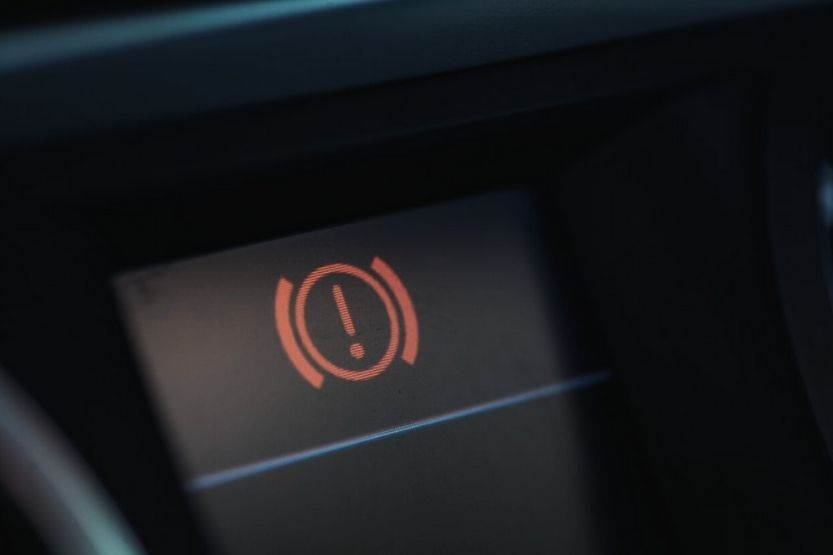
Not Normal for Braking System Warning Light to Turn on
You should be alarmed when your brake system warning light comes on. It is not normal for this light to turn on. You need to know what the brake system warning light tells you.
If you see it illuminated, there’s something wrong with your car’s brake system. You should not ignore this warning. Remember, car brakes are there for your safety.
Engaged Parking Brake
There could be many reasons why this brake warning light turns on. The most common cause is that the parking brake is still engaged while driving. Your car’s braking system is composed of many parts. Any part that breaks down will trigger this brake warning light.
Low Brake Fluid Level
Another possible reason is the brake fluid level is running low. One other reason is your battery is generating low voltage. While this is not directly related to the car’s braking system, it can still trigger the brake warning light to turn on.
Note that anything related to the braking system experiencing a problem can trigger this light.
Do Not Drive Too Far When the Brake Light Turns on
You must not drive too far when the brake light turns on. For instance, if the brake pads trigger the warning light, the farthest you can drive your car is around 1,000 miles. That’s the farthest distance that your car can sustain efficient braking.
One of the Most Important Safety Feature
Your brakes are one of the most important safety features of your car. So, when you see the brake warning light is on, you should pull off on the shoulder of the road and do a preliminary check. If you can’t pinpoint the cause, you need to call for help.
What You Need to Know About Brake Lights
Brake System Warning Light or Brake Light
The oldest light on a car’s dashboard is the brake light. Most people call the brake system warning light the ‘brake’ light. As I’ve mentioned above, there are many reasons for this brake light to turn on.
Consists of a Network of Brake Lines
Your car’s braking system consists of a network of brake lines with small tubes with hydraulic oil flowing inside them. At one end of this network is the master cylinder, which is a pump.
Pressure Exerted on the Brake Fluid
As you put your foot on the brake pedal, this master cylinder is actuated. Pressure is exerted on the brake fluid. On the other end of the brake lines are the brake calipers. There is one caliper on each wheel of the car.
Calipers Push the Brake Pads Against the Brake Rotors
These calipers are hydraulic clamping mechanisms that force or push the brake pads against the brake rotors (metal discs). This creates friction so that your car can slow down and stop.
The amount of brake fluid inside the brake lines should be the same to maintain the pressure on the brakes on demand.
Leak Causes the Brake Fluid Level to Drop
If there’s a leak anywhere in this network of brake lines, the level of brake fluid will drop. When you step on the brake pedal, the right pressure will not be provided. Then you will lose the critical ability to stop your car when you need to.
Brake Failure Due to Leak
So, a leak will result in brake failure. To prevent this situation, a sensor is inserted into the master cylinder or pump that will trigger the brake light if the brake fluid level is running low.
The brake warning light is activated on older cars when the car being driven has its parking brake still engaged. The warning light is triggered because of the dangerous situation.
Is It Safe to Drive With the ABS and Brake System Lights On?
Reasons Why Brake Warning Light Is On
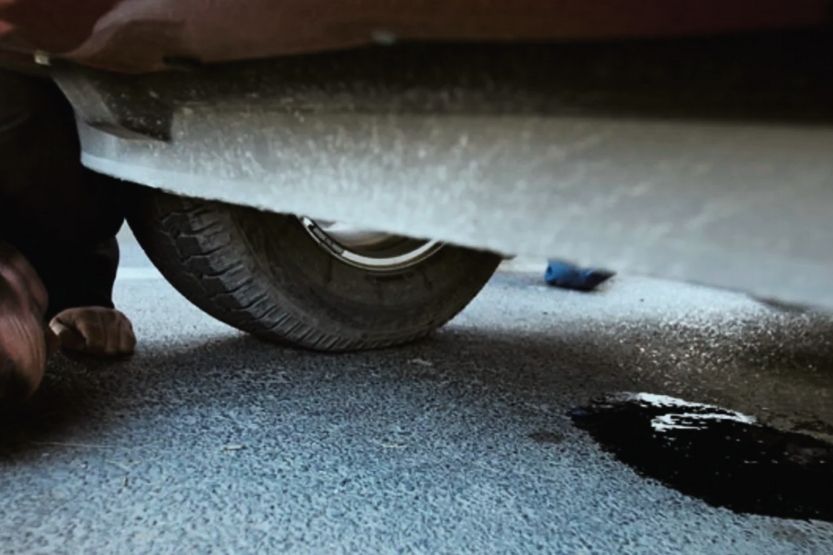
The brake warning light turns on because the braking sensor was triggered by something that can compromise the car’s braking system. What are the things that can trigger this sensor?
1. Leaking Brake Fluid
Brake fluid from the reservoir flows inside the brake fluid hoses and goes into the calipers. A leak in any one of these hoses will compromise the operation of your braking system. To catch your attention, the brake warning light will turn on.
What to Do
- Check the brake fluid level on the container. Perhaps it has dropped because of the leak somewhere.
- Check under your car and look for drips or puddles of brake fluid on the ground.
- If you find where it is dripping, trace the brake hose in all the wheels until you find the exact spot the leak is coming from.
2. Faulty Brake Fluid Sensor
You’ve checked everything, and all seems fine in your brake line hoses, brake pads, etc. And yet, that pesky brake warning light is still on. What could be the problem?
Perhaps the problem is the brake fluid sensor itself. This sensor is susceptible to failure and damage.
What to Do
- You need to perform a simple brake fluid level sensor test.
- If the sensor fails this test, replace it if you can. If not, have it replaced by a qualified mechanic.
3. Bad Brake Pads and Brake Discs
Worn Out Due to Friction
Brake pads and brake discs are constantly subjected to friction while your car is running. So, over time they will wear out and eventually fail. When these two are no longer functioning properly, they will not be able to apply the right braking pressure each time you put your foot on the brake pedal.
Require More Brake Fluid
It will require more brake fluid to cover the extra distance they need to travel. Under this condition, they will use up more brake fluid, which will result in a reduced brake fluid level in the reservoir. All these situations will trigger the brake warning light on your dashboard.
4. Engaged Parking Brake
Forgetting that the parking brake is still engaged and driving the car head-on is one of the most common reasons the brake warning light turns on. It can also happen that the parking brake is not fully disengaged while the car is running.
Result in Premature Wearing of the Brake Pads
Not fully disengaging the parking brake and driving the car will result in premature wearing of the brake pads. It can also result in damage to the wheel bearing. The most serious consequence of this habit is a complete failure of the car’s braking system.
Effect of Incompletely Disengaged Parking Brake
The effect of an incompletely disengaged parking brake before driving is different for front-wheel drives and rear-wheel drives. There is less risk of damage to a front-wheel drive than a rear-wheel drive.
There’s a good chance that the vehicle will not be able to move forward for the front wheels if the parking brake is still engaged. So, there will be little damage to the vehicle. But in rear-wheel drives, the engine can overpower the parking brake.
Strange Smell or Audible Warning
So, the driver can drive the car without getting any warning. Sometimes, the car could give an audible warning. At other times it will produce a strange smell indicating that something is amiss.
Fully Disengage the Parking Brake
If the brake warning light turns on and you find it because you haven’t fully disengaged the parking brake, disengage it to the full, and the light will go away. But if the light stays on, it is not just the parking brake that is your problem.
5. Malfunctioning ABS
If you have a modern car, it is probably equipped with an ABS or Anti-Lock Braking System. It is a good safety feature, but it can also go bad. If the ABS in your car is having some issues, the ABS warning light will turn on.
ECU Has an Error Code System That Can Identify the Cause of the Problem
Several errors could trigger this light on your dashboard. Thankfully, your car’s ECU has an error code system that can specifically identify the cause of the problem. Car mechanics use a special tool, the Onboard Diagnostics (OBD) scanner, to determine the exact cause of the problem.
Unusable Anti-Lock Features
Thankfully, even if your ABS malfunctions, you can still drive your car. But you won’t be able to use its anti-lock features. The soonest you can, have it checked by a qualified mechanic if you want the added safety advantage that ABS brings into your driving experience.
Again, what does it mean when the brake system warning light is on? When your car’s brake system warning light is on, it has a low hydraulic fluid (brake fluid), or you engaged its parking brakes. A brake consists of brake lines and tubes with hydraulic oil.
6. Brake or Tail Lights Going Bad
Can Affect Safety on the Road
One of the most common problems vehicle owners encounter is tail lights going bad. This issue cannot directly affect the performance of the vehicle. But it can directly affect your safety on the road.
You will not be able to see this problem while it is developing. You have no way of seeing your tail lights while you are driving. But you will discover it once a police officer stops you because you are driving a vehicle with defective brake lights.
Check the Tail Lights
So, if the brake light warning system lights up on your dashboard, it will be good to check your taillights. Probably, the warning light is being triggered by the malfunctioning brake lights. If your brake lights are going bad, replace them as soon as possible.
7. Battery Problems
Low Voltage Causes Different Electrical Issues
Battery problems can also trigger the brake warning light. If the battery supplies low voltage to the car’s electrical system, it can lead to different electrical issues.
Flickering Lights on the Dashboard
One manifestation of this issue is the flickering of the lights on your dashboard and the cabin lights. Or perhaps, the brake warning light comes on and off.
Difficulty Starting up the Engine
This usually happens when your car is idle. But when you rev the engine, the lights go bright. A low-voltage battery will also have trouble starting up your engine. To fix this issue, charge your battery to its fullest. And then check if the problem is solved or not.
Bring the Battery to Your Trusted Shop
If it seems to solve the problem for a while, but then the problem comes back again, bring your battery to the battery shop and have it checked. If it’s old, you probably have to replace it.
8. Too Low Brake Fluid Level
If the brake fluid in the reservoir is too low, it will also trigger the brake warning light on your dashboard. A sensor inside the pump or master cylinder relays your vehicle’s ECU information and turns on the light.
Two Sections in the Brake Fluid Sensor
There are two sections in the brake fluid reservoir. This is to make sure that your car always has the correct amount of brake fluid to be able to stop your vehicle whenever you need to. If one section fails, there is another section that will carry on with the job.
Bring the Car to the Nearest Car Repair Shop
But if both sections fail, then you are driving dangerously. And this is one of the reasons why the brake warning light turns on. If this happens, bring your car to the nearest car repair shop to examine why this light was triggered.
Why Your Brake Lamp Warning Light Turns On
How to Ensure Brake Warning Light Works
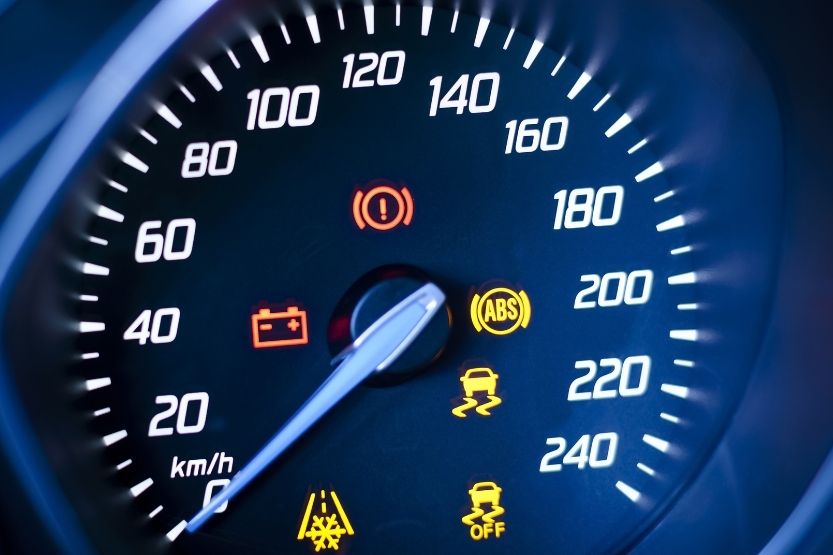
Ensures Safety
The brake warning light on your dashboard is not there to annoy you. Its function is to ensure your safety each time you drive your vehicle. However, it won’t be able to perform its function if it can’t communicate with you.
Observe Whether the Brake Warning Light Is on
So, to be sure that it is always working correctly. You can straightforwardly do this. During start-ups, after you’ve turned on the ignition system but before you turn on the engine, observe if the brake warning light lights up on your dashboard.
Your vehicle’s warning lights should light up when you turn on the ignition system. That includes the brake warning light. After a few seconds, they will all turn off. This is the self-check of your vehicle to see if all the warning lights are working.
Familiarize Yourself with All These Warning Lights
If one of the warning lights doesn’t turn on, it is an indication that that light is not working. So, be familiar with all these warning lights to know which one is not working when they won’t show up whenever you start your vehicle.
Is It Safe to Drive While the Brake Warning Light is On?
Since you don’t know why the brake warning light has turned on, it is unsafe to continue driving while it is on. The best move you can make is to drive to the shoulder of the road and stop your vehicle.
There are many possible causes of this warning light coming on. Since you are on the road, you won’t be able to perform an exhaustive examination of your vehicle. You can call for help and get your vehicle towed to the nearest car repair shop to have it checked.
How to Fix Brake Lamp Bulb Fault
Frequently Asked Questions
Here are some of the questions frequently asked about brake warning lights and their respective answers. Reading them will help you better remember the points discussed in this article:
What Will I Do If the Brake Warning Light Stays On?
The wisest thing to do if the brake warning light stays on is to lower your speed, drive to the shoulder and stop. Call for a towing service and get your car to the nearest car shop so they can check your braking system. Driving with a warning light on your braking system is dangerous.
What Is the Common Reason Why the Brake Warning Light Turns On?
The most common reason for triggering the brake warning light is that the parking brake is still engaged while the car is being driven. Another usual reason is the brake fluid level is running too low.
What Can Happen If the Brake Warning Light Turns On?
Don’t panic if suddenly your brake warning light comes on. You have more than one hydraulic system in your hydraulic braking system.
It will take longer for your car to come to a complete stop than normal. But if you can, pull over the shoulder and call for a towing service so they can bring your car to the repair shop or your home.
Conclusion: Brake System Warning Light – What It Means When It Comes On?
If your brake warning lights suddenly turn on, it tells you that something is going wrong with your car’s braking system.
It will be dangerous to disregard this warning because a good and working braking system spells the difference between a safe and a disastrous trip. You should investigate the reason why it suddenly came on.
There are several reasons why this brake warning light comes on. You need to know the common reasons to be prepared and not panic when this issue suddenly pops up while you are driving.
Read next:

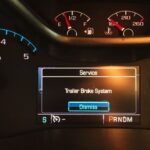
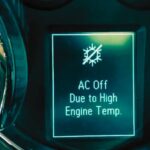

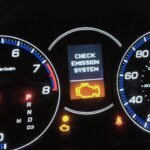
![Service Stability System [Causes and How to Fix this Warning Light] service stability system](https://roadsumo.com/wp-content/uploads/2022/04/service-stability-system-150x150.jpg)
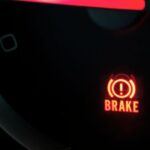
![Read more about the article Driving With a Bad Purge Valve [What Happens? Signs and Symptoms]](https://roadsumo.com/wp-content/uploads/2022/02/driving-with-a-bad-purge-valve-300x200.jpg)
![Read more about the article White Smoke Coming From Exhaust [Startup, Idle, or Accelerating]](https://roadsumo.com/wp-content/uploads/2021/03/white-smoke-from-exhaust-300x200.jpg)
![Read more about the article Brake Lights Won’t Turn Off [Causes and How to Fix]](https://roadsumo.com/wp-content/uploads/2021/05/brake-lights-wont-turn-off-300x200.jpg)